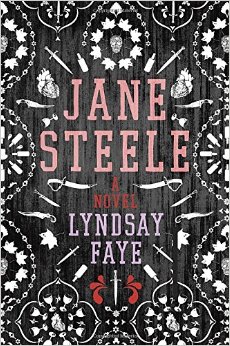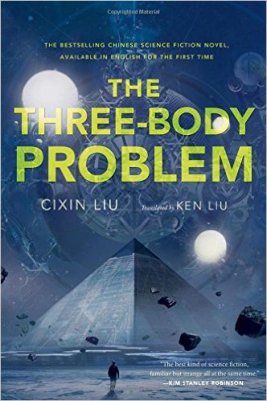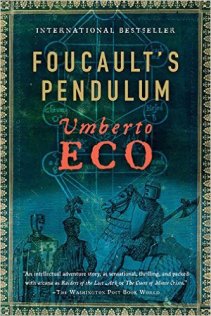Now that I have moved and unpacked all my things, I am trying to get back into some sort of a routine. It’s harder than I thought it would be; for several days I could not even remember what things I used to do before the Month of Anxiety and the End of the World (aka March). What was the last book I read from start to finish?
It seems like I did not do any reading in March at all, but as I think back, I realize I did finish Joe Hill’s The Fireman in two or three days. In retrospect, it wasn’t a wise choice to read when my mental state was already not particularly steady. It’s big and on fire. People already refer to it as Hill’s magnum opus, which I suppose it is, but I don’t think it’s my favorite of his. It is very good, though. I remain a fan of N0S4A2 (as much as its title annoys me). But The Fireman will please you if you like your novels in high gear for many many pages. It’s out in May.
 Afterwards, a couple of books were picked up and then abandoned after a handful of pages, and then I read a memoir that was fine until it used the ‘t’ word to refer to a certain type of bar. It seems that its author is one of those gay men who remain largely ignorant of the fact that certain terms are no longer kosher to use (see also John Barrowman’s usage of the same word a few months ago).
Afterwards, a couple of books were picked up and then abandoned after a handful of pages, and then I read a memoir that was fine until it used the ‘t’ word to refer to a certain type of bar. It seems that its author is one of those gay men who remain largely ignorant of the fact that certain terms are no longer kosher to use (see also John Barrowman’s usage of the same word a few months ago).
And then I picked up something I did not expect to like. It did not seem like my type of book at all, but a number of people mentioned it was quite good, so I decided to give it a shot. Jane Steele by Lyndsay Faye is definitely delightful, smart, and witty. It is a reimagining of Jane Eyre, wherein Jane happens to be a serial killer (“Reader, I murdered him.”). I never particularly liked Jane Eyre, to be honest. Maybe I have been waiting for this iteration.
 Other reads were on the speculative fiction side, the first one being Third Body Problem by Cixin Liu, translated by Ken Liu. It got a lot of buzz and love last year, but it happened during the time when I briefly fell out of love with hard sci-fi. Third Body Problem reads like science fiction from the Golden Age, eager to cram all of the science and ideas inside. It reads stilted, emotions plainly explained, all character motivations delineated, everything over-described. And therein lies my beef with Third Body Problem. It’s not that I need a pure ‘show don’t tell’ approach, but I need my science fiction to be more of a novel and less of a guidebook. I don’t think it’s translation. Perhaps this is just Cixin Liu’s style. Sadly, I will never know, Chinese being one of languages I am not going to master in this lifetime.
Other reads were on the speculative fiction side, the first one being Third Body Problem by Cixin Liu, translated by Ken Liu. It got a lot of buzz and love last year, but it happened during the time when I briefly fell out of love with hard sci-fi. Third Body Problem reads like science fiction from the Golden Age, eager to cram all of the science and ideas inside. It reads stilted, emotions plainly explained, all character motivations delineated, everything over-described. And therein lies my beef with Third Body Problem. It’s not that I need a pure ‘show don’t tell’ approach, but I need my science fiction to be more of a novel and less of a guidebook. I don’t think it’s translation. Perhaps this is just Cixin Liu’s style. Sadly, I will never know, Chinese being one of languages I am not going to master in this lifetime. This week has been annoying to say the least, and now Umberto Eco died, so it is not ending on a high note either. What I would really like to do is to spend an entire day tomorrow re-reading Foucault’s Pendulum, the book with which I used to obsessed at one point in my life. Yet for some indescribable reason, I no longer have a copy, so I am going to settle for another example of strange historical fiction, John Wray’s Lost Time Accidents.
This week has been annoying to say the least, and now Umberto Eco died, so it is not ending on a high note either. What I would really like to do is to spend an entire day tomorrow re-reading Foucault’s Pendulum, the book with which I used to obsessed at one point in my life. Yet for some indescribable reason, I no longer have a copy, so I am going to settle for another example of strange historical fiction, John Wray’s Lost Time Accidents. Serge Brussolo’s mind must be a fascinating place. The best and possibly only way to describe his Deep Sea Diver’s Syndrome, now published in English by
Serge Brussolo’s mind must be a fascinating place. The best and possibly only way to describe his Deep Sea Diver’s Syndrome, now published in English by 
 I have finished The Census-Taker by China Miéville, and did not particularly like it. I appreciated the style, but I didn’t enjoy it. It’s as if the entire book were chiseled out of a gray stone, with gray town, gray people, and gray things happening in it. Perhaps it’s the almost complete absence of names (but no, that can’t be it, Jeff VanderMeer’s Annihilation did not have names either), perhaps it’s the length. I always find novellas awkward. They spread out past short story length, but feel half-formed, like dough that has risen but not baked. I might not be able to articulate precisely why I didn’t have fun reading it, but the verdict remains that this was definitely not my favorite Miéville. He has another book out later this year (The Last Days of New Paris), so we will see how I fare with that one. As I mentioned before, my favorite writers are those who are hit or miss with me, because that means they are trying different things. I love Miéville’s writing, and I will definitely continue reading his books.
I have finished The Census-Taker by China Miéville, and did not particularly like it. I appreciated the style, but I didn’t enjoy it. It’s as if the entire book were chiseled out of a gray stone, with gray town, gray people, and gray things happening in it. Perhaps it’s the almost complete absence of names (but no, that can’t be it, Jeff VanderMeer’s Annihilation did not have names either), perhaps it’s the length. I always find novellas awkward. They spread out past short story length, but feel half-formed, like dough that has risen but not baked. I might not be able to articulate precisely why I didn’t have fun reading it, but the verdict remains that this was definitely not my favorite Miéville. He has another book out later this year (The Last Days of New Paris), so we will see how I fare with that one. As I mentioned before, my favorite writers are those who are hit or miss with me, because that means they are trying different things. I love Miéville’s writing, and I will definitely continue reading his books. But let’s move on to recent reads. My affair with strange and weird is in full swing, and Beatlebone is so strange and weird, it’s in its own category. First of all, Kevin Barry is a wizard and I want to eat his words with a spoon. Let’s look at few examples:
But let’s move on to recent reads. My affair with strange and weird is in full swing, and Beatlebone is so strange and weird, it’s in its own category. First of all, Kevin Barry is a wizard and I want to eat his words with a spoon. Let’s look at few examples: The first story in the collection is a retelling of The Sleeping Beauty, and while I am normally not very much into fairy tale retellings (I like them when they are well-done, but I do not seek them out), this one was great. The second story pretty much hit the ‘weird’ I had been seeking, and so I by the time I read the incredibly beautiful third story, I was thoroughly in love with Theodora Goss and her wonderfully strange tales.
The first story in the collection is a retelling of The Sleeping Beauty, and while I am normally not very much into fairy tale retellings (I like them when they are well-done, but I do not seek them out), this one was great. The second story pretty much hit the ‘weird’ I had been seeking, and so I by the time I read the incredibly beautiful third story, I was thoroughly in love with Theodora Goss and her wonderfully strange tales. Carry On is a fascinating book because it’s sort of a self-aware, meta fan fiction. If you have read Fangirl, you will recognize the name Simon Snow, as he is the character in protagonist Cait’s fan fiction. Carry On does not hide the fact that it is fan fiction and in fact offers some interesting insights into its source (Harry Potter), as well as into main themes of said source (being the chosen one, prophecies, having a Scooby gang (sorry, mixing fandoms here) to help you save the world from evil dark things, and so on). Fan fiction gets all kinds of disdain from people who think it’s a low and silly form of literature, but let me be clear, Carry On is a good book regardless of its provenance. If I never read Harry Potter, I still would have loved Carry On. There are familiar Potterverse elements in it, but there are also differences and extras that give the book its own character (which is really what good fan fic and good books are all about).
Carry On is a fascinating book because it’s sort of a self-aware, meta fan fiction. If you have read Fangirl, you will recognize the name Simon Snow, as he is the character in protagonist Cait’s fan fiction. Carry On does not hide the fact that it is fan fiction and in fact offers some interesting insights into its source (Harry Potter), as well as into main themes of said source (being the chosen one, prophecies, having a Scooby gang (sorry, mixing fandoms here) to help you save the world from evil dark things, and so on). Fan fiction gets all kinds of disdain from people who think it’s a low and silly form of literature, but let me be clear, Carry On is a good book regardless of its provenance. If I never read Harry Potter, I still would have loved Carry On. There are familiar Potterverse elements in it, but there are also differences and extras that give the book its own character (which is really what good fan fic and good books are all about).